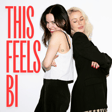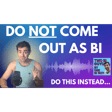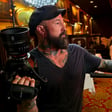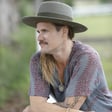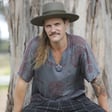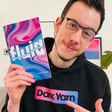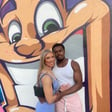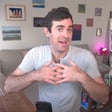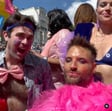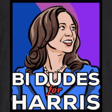
Shiri Eisner on Re-Imagining Bisexual Masculinity
Follow Shiri Eisner on Twitter: https://twitter.com/ShiriEisner
Buy Shiri's book: https://bookshop.org/books/bi-notes-for-a-bisexual-revolution/9781580054744
Follow Jacob Engelberg on Twitter: https://twitter.com/criticalprvrsn
We are THRILLED to have author, activist, and true bi-con Shiri Eisner on Two Bi Guys for a special 2-part episode! Shiri is the author of "BI: NOTES FOR A BISEXUAL REVOLUTION", a must-read for bisexual people and anyone looking to understand contemporary bi politics. And we are excited to welcome back Jacob Engelberg, who has studied Shiri's work in the course of his own research, as our guest-host!
In this episode, we discussed how and why Shiri wrote her book, why the rigid structure of masculinity harms men and how bisexuality offers men an opportunity to reimagine masculinity, why bi visibility is the bare minimum and does not equal acceptance, the ubiquitous and often-invisible bi-phobia in our society -- and television's frequent avoidance of bi-phobia when representing bisexuality, and what kind of bi representation Shiri would like to see on TV (more "messy bisexuals" please!).
Stay tuned for part 2 when we discuss the politics of Israel/Palestine (where Shiri currently lives) and how bisexuality can inform our understanding of oppression, marginalization, and erasure.
Two Bi Guys is produced and edited by Rob Cohen
Created by Rob Cohen and Alex Boyd
Logo art by Kaitlin Weinman
Music by Ross Mintzer
We are supported by The Gotham (formerly IFP)
